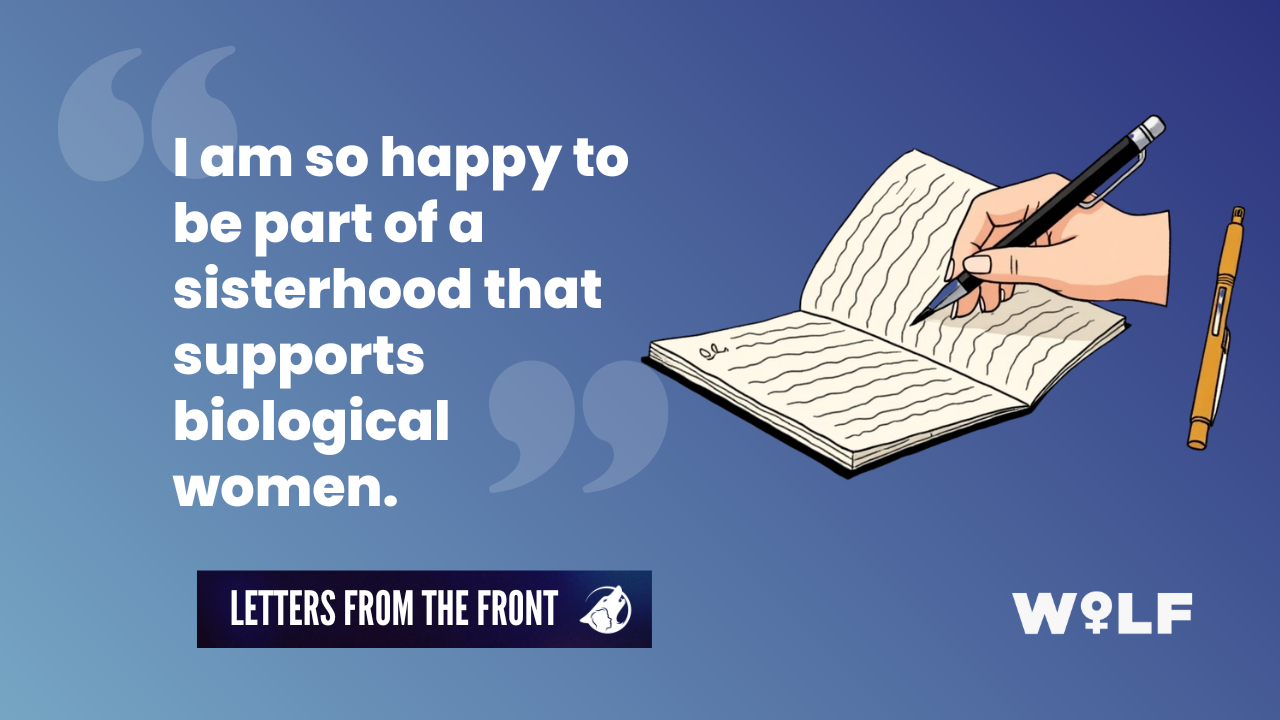When Conversation Breaks Down
“He told me that his gender identity wasn't something open to debate, wasn't an ideology, and that I was questioning his entire existence.”
I'm a young woman (27) from the Midwest. And I'd like to share my journey of how I became gender-critical. I have a background in English, Religious Studies, and Philosophy and I earned my MA in 2021 from an Ivy League University.
A little bit of context about my background—I come from a religious upbringing more in the conservative line of thought. However, during my college years, I spent my time studying my belief system for myself, in order to decide who I was as a person. This questioning led me to the field of religious studies, where I grappled with the theological quandaries of Christianity and other religious traditions.
In my graduate studies, I continued to gravitate toward complex moral issues, to understand how and why we develop the beliefs we have about the world. I was taught over and over again the importance of openness in discussion, and one of the most significant things I learned was that in order to have a constructive conversation, both parties must be willing to develop their views; if only one, or none, are willing to adjust their ideas or allow for the possibility that 'I might be wrong,' forward progress remains unattainable and the only outcome is for one side to cave to the other.
I say this because what first exposed me to gender ideology was in fact, a conversation. In grad school, I was testing out online dating and met a wonderful guy from Ireland. We got along very well, both interested in learning about each other's countries, until about a month in, he told me he was non-binary and didn't identify as male or female.
This was the first direct interaction I had with someone outside of the gender binary. I wasn't sure what to say, because to me, it seemed like a conceptual paradox to be neither male nor female, as our minds conceive of the human world in general as masculine, feminine, or both/either. I told him that I didn't agree with the ideology but that I was open to learning. As soon as I used the word 'ideology,' the conversation went off the rails and we didn't accomplish anything except hurt feelings.
He told me that his gender identity wasn't something open to debate, wasn't an ideology, and that I was questioning his entire existence. He said the only options were to genuinely accept his identity point blank, or not. I tried my best to salvage things, but ultimately, we couldn't find a middle ground.
This experience greatly impacted me because I didn't understand where I went wrong and knew so little about gender. To me, it seemed unfair that a disagreement over gender identity had the power to kill a whole romance. So, in order to cope, I did what any scholar would do—research like crazy.
The complexity of gender identity ideology drew me in immediately and my passion has yet to dull. What I discovered in my research only reinforced further the illogical and irrational tangle of beliefs I first thought gender ideology to have. I spent countless hours attempting to reconcile the logic within the transgender belief system to find a way to create a coherent position out of the ideas transgender proponents profess, but to no avail. The deeper I dove, the more fractured and impenetrable the ideas became.
My research filled me with an intense desire to get my ideas out there, and so I began making short videos on gender-identity-related subjects anonymously on YouTube. My biggest video analogized gender dysphoria and eating disorders (because I recognized many similarities, having had personal experience with EDs). To get feedback, I shared this video with my best friend and her husband, D, because they were very pro-gender-ideology, and that was the audience I was seeking to appeal to.
Well, they watched the video, and what followed was a conversation with her husband that ended our 10 year friendship. In this conversation, I forgot the key to successful discussion—that if both people aren't willing to develop their ideas, there is little hope for constructive results. I claimed I was open to changing my ideas, but I was pretty set in my views. And D was attempting to re educate me in order for me to admit he was right.
Little was said about the actual content of the video, and it was mostly about the fact that I didn't accept the definition "a woman is anyone who identifies as a woman." I was told to remove the video, my position was treated as lesser than D's, and far from making any forward motion, we actually moved things backward. Feelings were hurt, personal things were said, and my best friend lost her respect for me. And so, we stopped talking.
Fast forward three years, and we still barely talk—my longest friendship ended over a single argument all because we couldn't discuss our different ideas together. So, what did I do after this? I went even harder in my efforts to spread awareness about gender ideology and to advocate for constructive conversation between differing viewpoints. I want to help people—especially young girls and detransitioners--and I don't want to let the sacrifice of my friendship be in vain—that is why I continue in activism today. And that is why I joined WoLF.
- C.
Letters From the Front is a series from WoLF curating stories from women about how “gender identity” ideology has impacted them. We’ll share new letters, submitted anonymously, each week. Write in to share your own story!
WoLF does not necessarily endorse the content of Letters.




